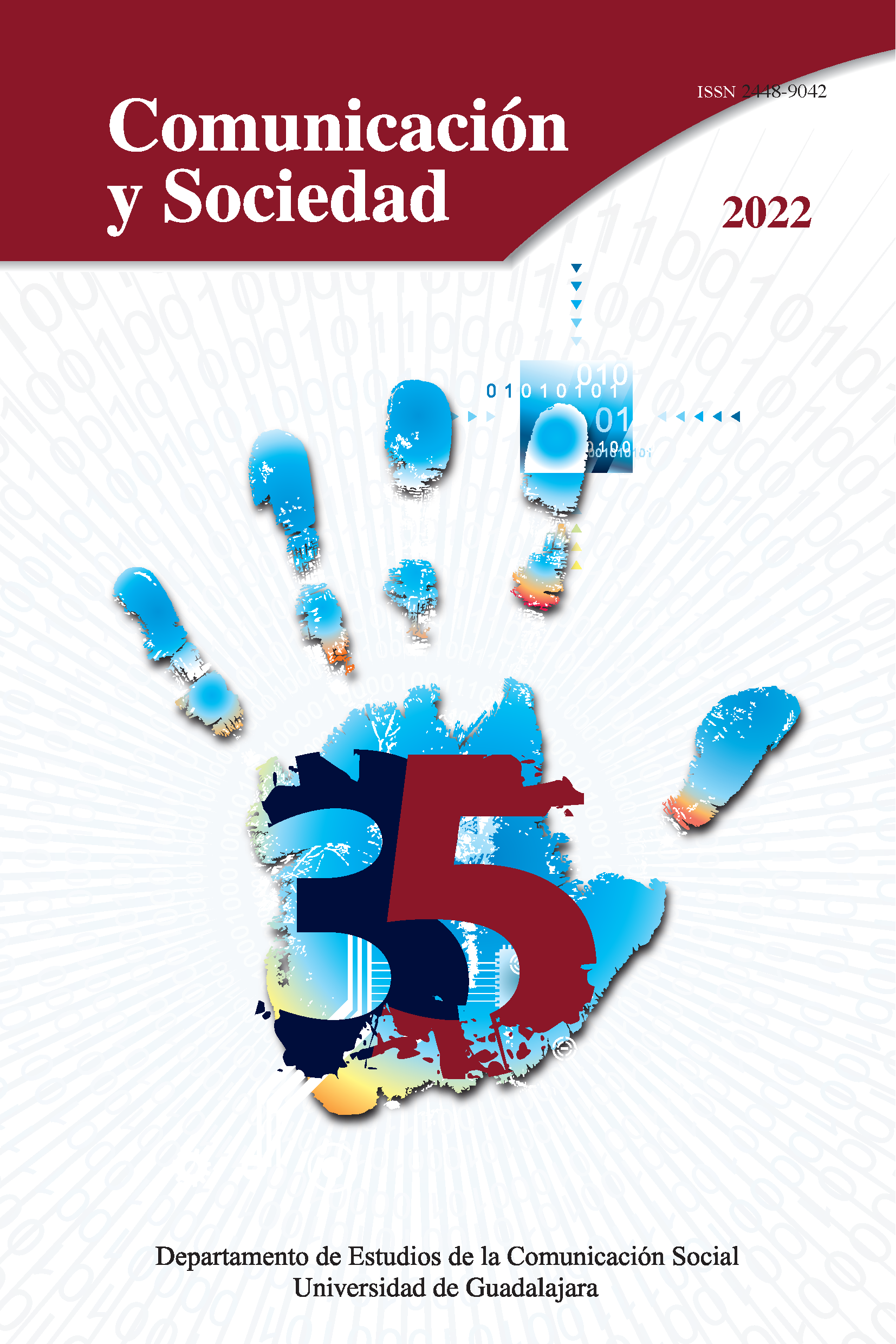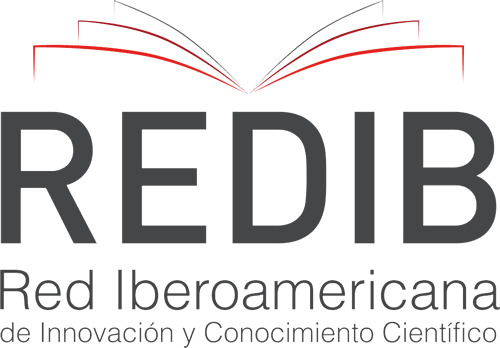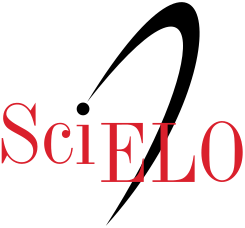Wokebranding: causas sociales como estrategias de marca. Un estado del arte en Chile
DOI:
https://doi.org/10.32870/cys.v2022.7835Palabras clave:
Branding, WokeBrands, WokeAdvertising, Activismo corporativo, ChileResumen
Las marcas han escogido diferentes modos de generar adhesión entre los consumidores, desde modelos basados en atributos, beneficios y valor, hasta la toma de posturas políticas críticas y el abrazar causas sociales; esto se conoce como Wokebranding. Basada en la recopilación de datos primarios y desde una perspectiva cualitativa y exploratoria, esta investigación pretende ayudar a entender el estado del arte de esta tendencia en Chile. El caso de estudio muestra las dificultades que se presentan para la adopción de este tipo de tendencias en el marco de una industria publicitaria debilitada. Este trabajo, así, intenta contribuir a la escasa atención académica que se la ha puesto a estos temas en América Latina.Descargas
Citas
Aaker, D. (2002). Building Strong Brands. Planeta.
Álvarez, O. (2018, 10 de septiembre). Estrategia de publicidad disruptiva: tu lado Wom. SocialGest. https://blog.socialgest.net/es/2018/09/10/estrategia-publicidad-disruptiva-wom/
Askegaard, S., Cardel Gertsen, M. & Langer, R. (2002). The Body Consumed: Reflexivity and Cosmetic Surgery. Psychology and Marketing, 19(10), 793-812. http://dx.doi.org/10.1002/mar.10038
Austin, L., Miller, B. & Gaither, K. (2019). Corporate Social Advocacy as Public Interest Communication: Exploring Perceptions of Corporate Involvement in Controversial Social-Political Issues. Journal of Public Interest Communication, 3(2), 3-31. https://doi.org/10.32473/jpic.v3.i2.p3
Bauman, Z. (2007). Liquid times: Living in an age of uncertainty. Polity Press.
Beckman, E. & Dalsjö Åström, M. (2019). Caught in a Bad Romance. The Contradiction of Woke Brands in Consumers’ Lives (Tesis de maestría inédita). Lund University, Suecia. https://lup.lub.lu.se/student-papers/search/publication/8991333
Bergkvist, L. & Zhou, Q. (2019). Cause-related marketing persuasion research: an integrated framework and directions for further research. International Journal of Advertising, 38(1), 5-25. https://doi.org/10.1080/02650487.2018.1452397
Bernard, J. (2019, 13 de marzo). Brands struggle to make ‘woke’ marketing work. Raconteur. https://www.raconteur.net/business-innovation/brands-woke-marketing
Black, I. (2006). The presentation of interpretivist resarch. Qualitative Market: An International Journal, 9(4), 319-324. http://dx.doi.org/10.1108/13522750610689069
Burgos, S. (2017, 22 de octubre). La última provocación de WOM. La Tercera. https://www.latercera.com/noticia/la-ultima-provocacion-wom/
Carrol, M. (2018, 7 de septiembre). Nike releases controversial Colin Kaepernick advert. The Telegraph. https://www.telegraph.co.uk/news/2018/09/07/nike-releases-controversial-colin-kaepernick-advert/
Cayla, J. & Eckhordt, G. (2008). Asian Brands and the Shaping of a Transnational Imagined Community. Journal of Consumer Research, 35(2), 216-230. https://doi.org/10.1086/587629
Charmaz, K. (2014). Constructing Grounded Theory. Sage
Chilescopio. (2017, 5 de agosto). Chilescopio, Tendencias 2017 [Informe público]. https://issuu.com/visionhumana/docs/informe_p__blico_chilescopio_2017_v
Chris Bannister, CEO de WOM: “El secreto de nuestra compañía es ser auténtica”. (2017, 1 de marzo). La Nación. http://www.lanacion.cl/chris-bannister-ceo-de-wom-el-secreto-de-nuestra-compania-es-ser-autentica
Clemensen, M. (2019). Corporate political activism: When and how should companies take a political stand? (Tesis de maestría inédita). Universidad de Minnesota, Estados Unidos. https://bit.ly/3jaDXH4
Dauvergne, P. (2017). Is the Power of Brand-Focused Activism Rising? The Case of Tropical Deforestation. Journal of Environment & Development, 26(2), 135-155. https://doi.org/10.1177%2F1070496517701249
De Chernatony, L. (1999). Brand Management Through Narrowing the Gap Between Brand Identity and Brand Reputation. Journal of Marketing Manager, 15(1-3), 157-179. https://doi.org/10.1362/026725799784870432
Dodd, M. (2018). Globalization, Pluralization, and Erosion: The Impact of Shifting Societal Expectations for Advocacy and Public Good. Journal of Public Interest Communications, 2(2), 221-238. http://dx.doi.org/10.32473/jpic.v2.i2.p221
Dodd, M. & Supa, D. W. (2014). Conceptualizing and Measuring “Corporate Social Advocacy” Communication: Examining the Impact on Corporate Financial Performance. Public Relations Journal, 8(3). http://www.prsa.org/Intelligence/PRJournal/Vol8/No3/
Equipo de corresponsales. (2018, 5 de abril). Especialista en marketing califica como “brillante” la apuesta publicitaria de WOM. El Tipógrafo. https://eltipografo.cl/2018/03/especialista-en-marketing-califica-como-brillante-la-apuesta-de-wom
Escalas, J. & Bettman, J. (2003). You Are What They Eat: The Influence of Reference Groups on Consumers’ Connections to Brands. Journal of Consumer Psychology, 13(3), 339-349. https://doi.org/10.1207/S15327663JCP1303_14
Fairclough, N. (2003). Analysing Discourse: Textual Analysis for Social Research. Routledge.
Fromm, J. (2020, 5 de septiembre). Purpose Series: A Purpose-Driven Brand Is A Successful Brand. Forbes. https://www.forbes.com/sites/jefffromm/2019/01/16/purpose-series-a-purpose-driven-brand-is-a-successful-brand/?sh=5522c293437
Gaither, B. M., Austin, L. L. & Schultz, M. (2018). Delineating CSR and social change: Querying corporations as actors for social good. PR Inquiry, (1), 45-61. https://doi.org/10.1177%2F2046147X17743544
Garriga, E. & Melé, D. (2004). Corporate Social Responsibility Theories: Mapping the Territory. Journal of Business Ethics, 53, 51-71. https://www.jstor.org/stable/25123282
Gensehues, A. (2018, 14 de septiembre). Nike, Colin Kaepernick and the pitfalls of ‘woke’ corporate branding. The Conversation. http://theconversation.com/nike-colin-kaepernick-and-the-pitfalls-of-woke-corporate-branding-102922
Glaser, B. G. (1978). Theoretical sensitivity. Sociology Press.
Hall, S. & du Gay, P. (1996). Cuestiones de la identidad cultural. Amorrortu.
Halliday, M. (1978). Language as Social Semiotic: The Social Interpretation of Language and Meaning. Edward Arnold.
Harold, C. (2007). Pranking rhetoric: “culture jamming” as media activism. Journal of Critical Studies in Media Communication, 21(3), 189-211. https://doi.org/10.1080/0739318042000212693
Herring, S. & Kapidzic, S. (2015). Teens, Gender, and Self-Presentation in Social Media. En Wright, J. D. (Ed.), International Encyclopedia of the Social & Behavioral Sciences (pp. 146-152). http://dx.doi.org/10.1016/B978-0-08-097086-8.64108-9
Holt, D. B. (1995). How consumers consume: A typology of consumption practices. Journal of Consumer Research, 22(1), 1-16. https://doi.org/10.1086/209431
Holt, D. (2002). Why do brands cause trouble? A dialectical theory of consumer culture and branding. Journal of Consumer Research, 29, 70-90. http://dx.doi.org/10.1086/339922
Holt, D. (2004). How Brands Become Icons: The Principles of Cultural Branding. Harvard Business School Press.
Johnston, J. & Pieczka, M. (2019). Public interest communication: A framework for systematic inquiry. Routledge.
Kim, K., Cheong, Y. & Joon, S. (2015). Choosing the right message for the right cause in social cause advertising: type of social cause message, perceived company-cause fit and the persuasiveness of communication. International Journal of Advertising: The Review of Marketing Communications, 34(3), 473-494. https://doi.org/10.1080/02650487.2015.1006081
Korschun, D., Aggarwal, A. & Rafieian, H. (2016). Taking a Stand: Consumer Responses to Corporate Political Activism [Working paper]. http://dx.doi.org/10.13140/RG.2.1.3081.6243
Kvale, S. (2011). Las entrevistas en investigación cualitativa. Morata.
Lars, B. & Kris, Q. (2019). Cause-related marketing persuasion research: an integrated framework and directions for further research. International Journal of Advertising, 38(1), 5-25. https://doi.org/10.1080/02650487.2018.1452397
Lury, C. (2004). Brands: The Logos of the Global Economy. Routledge.
McCraken, G. (1986). Culture and Consumption: A Theoretical Account of the Structure and Movement of the Cultural Meaning of Consumer Goods. Journal of Consumer Research, 13(1), 71-84. https://doi.org/10.1086/209048
McIntosh, M. & Morse, J. (2015). Situating and Constructing Diversity in Semi-Structured Interviews. Global Qualitative Nursing Research. https://doi.org/10.1177%2F2333393615597674
Moir, L. (2001). What Do We Mean by Corporate Social Responsibility? Corporate Governance, 1(2), 16-22. https://doi.org/10.1108/EUM0000000005486
ND J. (2018). Colin Kaepernick Nike Commercial FULL VIDEO [Video]. YouTube. https://www.youtube.com/watch?v=lomlpJREDzw
Nike is embroiled in a doping scandal. (2019, 5 de octubre). The Economist. https://www.economist.com/business/2019/10/05/nike-is-embroiled-in-a-doping-scandal
Ojo de Iberoamérica. (2020, 14 de diciembre). Ranking El Ojo Local 2020: Las Mejores Ideas y el Desempeño de México, Chile y Puerto Rico. https://www.elojodeiberoamerica.com/ranking-el-ojo-local-2020-las-mejores-ideas-y-el-desempeno-de-mexico-chile-y-puerto-rico/
Patton, M. (1990). Qualitative evaluation and research methods. Sage.
Pisani, J. (2019, 20 de diciembre). Nike’s plan for better-fitting kicks: Show us your feet. Phys.org. https://phys.org/news/2019-05-nike-better-fitting-feet.html
Porter Novelli/CONE. (2018). 2018 Porter Novelli/CONE Purpose Premium Index: How companies can unlock reputational gains by leading with purpose. https://www.conecomm.com/research-blog/purpose-premium
Rao, V., Agarwal, M., Dahlhoff, D. (2004). How Is Manifest Branding Strategy Related to the Intangible Value of a Corporation? Journal of Marketing, 68(4), 126-141. http://dx.doi.org/10.1509/jmkg.68.4.126.42735
Redacción Adlatina. (2021, 5 de julio). Cannes Lions anunció sus rankings completos: varias agencias latinas destacadas. Adlatina. https://www.adlatina.com/publicidad/cannes-lions-anunció-sus-rankings-completos:-varias-agencias-latinas-destacadas
Roper, S. & Fill, C. (2012). Corporate Reputation, Brand and Communication. Pearson PLC.
Salpini, C. (2019, 17 de enero). Nike CEO Mark Parker’s last report marked by first $1B quarter for Jordan. RetailDive. https://www.retaildive.com/news/nike-ceo-mark-parkers-last-report-marked-by-first-1b-quarter-for-jordan/569532
Salzer-Mörling, M. (2010). Consumption of brands. En K. M. Ekström (Ed.), Consumer Behaviour: A Nordic Perspective (pp. 531-548). Studentlitteratur.
Sassatelli, R. (2007). Consumer Culture: History, Theory and Politics. Sage.
Thompson, C. & Hirschman, E. (1995). Understanding the Socialized Body: A Poststructuralist Analysis of Consumers’ Self-Conceptions, Body Images, and Self-Care Practices. Journal of Consumer Research, 22(2), 139-153. https://doi.org/10.1086/209441
Tracy, S. J. (2013). Qualitative Research Methods. Wiley-Black Well.
van Djik, T. (1998). Ideology: a multidisciplinary approach. Sage.
Vredenburg, J., Kapitan, S. & Spry, A. (2020). Brands Taking a Stand: Authentic Brand Activism or Woke Washing? Journal of Public Policy & Marketing, 39(4), 444-460. https://doi.org/10.1177%2F0743915620947359
WARC. (2021, 5 de julio). WARC Rankings. https://www.warc.com/rankings/creative-100/top-countries/2020
Wenger-Trayner, B. (2017). Financial governance: accounting for social learning in a regional network in Africa. Knowledge Management for Development Journal, 13(3), 22-38. http://journal.km4dev.org
Wise, L. (2018, 10 de septiembre). Pop culture's re-awokening: is this political shift a movement or moment? The Guardian. https://www.theguardian.com/culture/2018/feb/17/pop-cultures-re-awokening-is-this-political-shift-a-movement-or-moment
WOM, un caso de estudio. (2018, 16 de julio). Medium. https://medium.com/@nbravoch/wom-un-caso-de-estudio-b272b473294f
Descargas
Publicado
Cómo citar
Número
Sección
Licencia
Derechos de autor 2021 Sebastián Goldsack-Trebilcock, Claudia Labarca, Constanza Mujica

Esta obra está bajo una licencia internacional Creative Commons Atribución-NoComercial 4.0.
Los autores/as que publiquen en esta revista aceptan las siguientes condiciones:
De acuerdo con la legislación de derechos de autor, los autores conservan los derechos de autoría y otorgan a Comunicación y Sociedad el derecho de primera comunicación pública de la obra. Comunicación y Sociedad no realiza cargos a los autores por enviar y procesar artículos para su publicación.
Los autores/as pueden realizar otros acuerdos contractuales independientes y adicionales para la distribución no exclusiva de la versión del artículo publicado en Comunicación y Sociedad (por ejemplo incluirlo en un repositorio institucional o publicarlo en un libro) siempre que indiquen claramente que el trabajo se publicó por primera vez en Comunicación y Sociedad.











